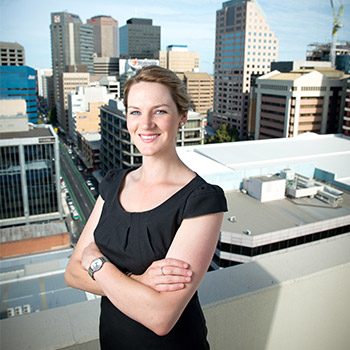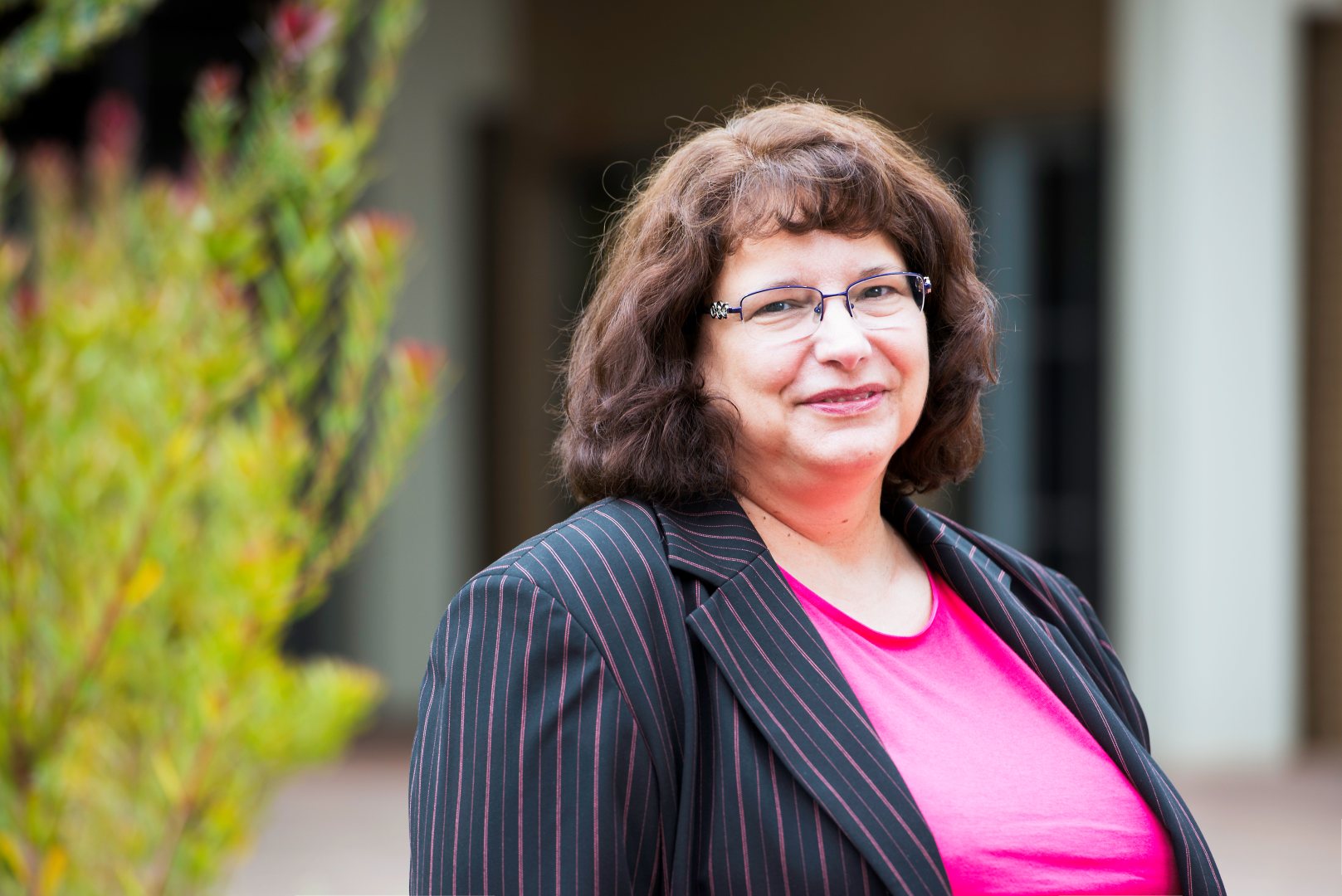You're viewing degree information for Australian students
You're considered an Australian student if you are any of the following:
- Australian or New Zealand Citizen
- Australian Permanent Resident (including Humanitarian Visa holders)
Discipline info for Australian students
Interested in Information Management?
Information is one of the most vital, strategic assets in today's society.
UniSA's Information Management degrees offer you a learning environment informed by industry and relevant professional practice. The degrees are accredited by the Australian Library and Information Association, the Australian Society of Archivists, and Records and Information Management Professionals Alliance.
This program is ideal if you are a professional looking to gain employment in the library and information management sector. UniSA has a unique partnership with the State Records of South Australia, allowing you to obtain a qualification that is strongly aligned with the needs of industry.
You can tailor your studies to suit your life, with flexible options such as part-time and online study. Study at the number one university in SA for graduate skills1 and teaching quality2.
1ComparED (QILT) Student Experience Survey 2021-22, Skills Development Indicator (Postgraduate). SA public universities.
2ComparED (QILT) Student Experience Survey 2021-22, Teaching Quality Indicator (Postgraduate). SA public universities.
Key features
- Developed in conjunction with the State Records of South Australia and the UniSA Library.
- Benefit from experiential learning through practical field work projects.
- Our information management degrees are the only degrees of their kind in South Australia.
- Flexible study opportunities, including part time and online.
- 100 percent of our assessed research rated at or above world-class1.
- Accredited by the Australian Library and Information Association, the Australian Society of Archivists, and Records and Information Management Professionals Alliance.
- UniSA is an unstoppable university for unstoppable people. As one of the World’s Top Young Universities2, we’ll ensure you get the experience your future profession demands so it’ll feel like you’re studying one minute and in a career the next.
12018 Excellence in Research for Australia (ERA), 4-digit Fields of Research.
2UNSTOPPABLE® is a Kellogg Company trade mark used under licence. Ranked #43, 2024 THE Young University Rankings.
The Information Management programs have a strong foundation in contemporary professional practice, offering a learning environment informed by industry and relevant professional practice. They have been developed and are delivered in partnership with industry – in particular, the State Records of South Australia and the UniSA Library.
You can significantly improve your employment prospects and professional standing with a degree that’s accredited by the Australian Library and Information Association, the Australian Society of Archivists and Records and Information Management Professionals Alliance.
Staff members from each of these industry partners teach and guest lecture in the courses, melding theory and practice and creating a convergence between librarianship, records management, and archives.
UniSA offers a number of information management programs within the Library and Information Management, and Archives and Records Management areas. These include a suite of three programs (graduate certificate, graduate diploma and master). Each qualification extends to the next, so you can easily transition to a master level qualification.
UniSA offers the following Information Management degrees
Choose your level of study
Within the Information Management sector, there is predicted growth in new jobs. A 2018 report1 from the Australian Library and Information Association states that qualifications are becoming increasingly important in Library Management. There will be a moderate increase in the number of qualified positions available over the next five years, but a significant decrease in the number of positions for unqualified staff.
Careers to consider:
- librarian: managing and resourcing a branch library, a section of a large library, a small special library, or a research program; supervising and leading staff; providing expert advice on strategic information management; managing major projects such as information technology systems
- records manager: managing the storage and maintenance organisational records; maintaining the legal requirements of record keeping and freedom of information; ensuring the responsible and appropriate disposal of records
- archivist: authenticating and appraising historical documents and archival materials; maintaining accessible, retrievable computer archives and databases; locating new materials and organising their acquisition and display
1 ALIA – LIS Education, Skills and Employment Trend Report 2018

Global networks
We are a globally connected university; our staff and students come from over 90 countries. We have more than 2,500 industry and professional relationships that support student internships, research and community engagement.
UniSA also has extensive research strengths and partnerships that provide a strong foundation for all our degree programs.
The University of South Australia has more than 200 industry partners. In your courses, you will have opportunities to get real-world experience through projects and placements with our partners.

Thinking of studying soon?
Have any questions? We're here to help! Contact Adelaide University's Future Student Enquiries Team.
Ask UniSA
-
How do I apply?
The way you apply for UniSA will depend on the undergraduate or postgraduate coursework degree you're interested in studying.
The majority of applications are made via the South Australian Tertiary Admissions Centre (SATAC). Check out more information on the SATAC website and follow the appropriate process for your degree of interest.
There are a small number of degrees that you need to apply for through direct application processes. The process you need to follow will be listed on the 'How to Apply' section of the degree homepage, but you'll also be taken to where you need to go if you hit the 'apply' button.
If you are interested in studying one of our 100% online degrees you'll need to apply directly to UniSA Online.
You can find more information about the application processes for UniSA on our How to Apply webpage.
If you're more interested in applying for a postgraduate degree by research, check out and follow the information in our step by step guide to applying. -
Is there a closing date for applications?
Applications for all degrees will close ahead of study commencing, but the timelines may vary for undergraduate and postgraduate degrees.
Undergraduate
The deadline to apply to study a degree at UniSA for semester one (commencing late February) and be guaranteed equal consideration is generally in very late November or early December. While you may be able to apply after this date, you are not guaranteed to be considered equally with other applicants and your application may not be assessed in time for the main round of offers. More competitive degrees may not make any offers after the main offer round. Find more information on the Key Dates section of the SATAC website, but you can also call the Future Student Enquiries team for more information on 08 8302 376.
Postgraduate
Many postgraduate by coursework degrees do not have set closing dates. The exceptions are highly competitive degrees, so it is best to check – either on the degree homepage on the SATAC website or by checking with our Future Student Enquiries team.
As most postgraduate applications are assessed as they are submitted and offers are continuous, there are no set closing dates for applications. Degrees can be filled and closed with little notice so it is best to apply as soon as possible to avoid missing out on a place. For more information, please contact our Future Student Enquires team on (08) 8302 2376 or submit an enquiry.
-
What credit can I receive for previous studies?
You may be eligible for credit or advanced standing for your chosen UniSA degree based on your previous studies, if they are in a related area and completed within a certain timeframe. Receiving credit or RPL will reduce the number of courses you undertake within the degree, and may also reduce the overall duration of your degree. You can read more about our pre-existing credit agreements through our online Credit Assessor. If you have related industry experience, you may also be eligible to receive recognised prior learning (RPL) for this experience. Credit and RPL is assessed by the Program Director once you've received an offer, and you apply through UniSA's current student experts, Campus Central.
-
Can I speak to someone regarding my study options?
Future Student Enquiries welcomes the opportunity to meet with you to discuss your study options at UniSA. We can discuss degree information, entry requirements and pathways, applications, general career outcomes and student life, so you have the information to make the best study decision for your future. Head to our Book an Appointment webpage to find a date and time to speak with us, and take your next steps on journey to university study.
Study at UniSA
Master of Information Management (Library and Information Management) student Taish Shaw discusses her experience of studying at the University of South Australia.






